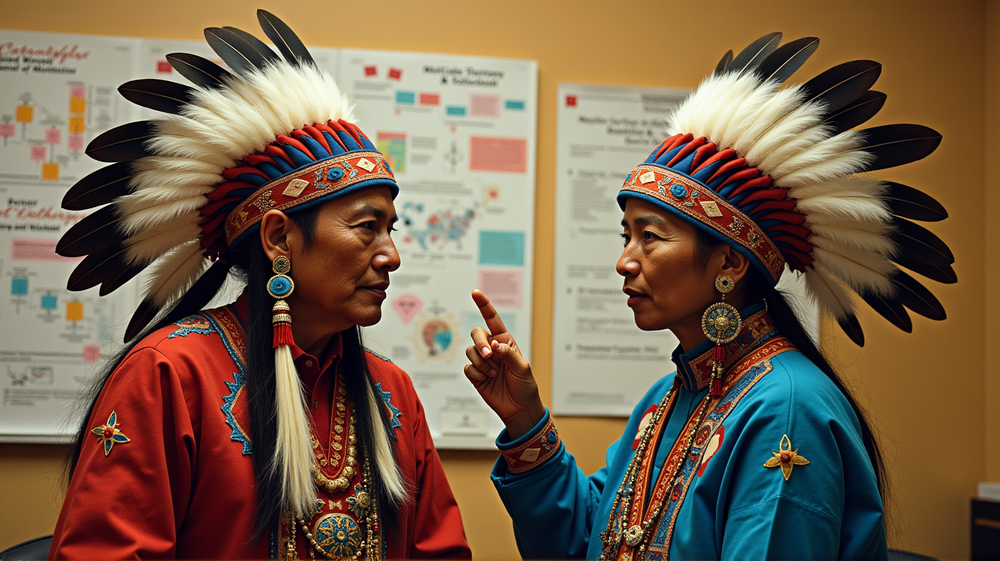A Culture at Risk: Facing New Medicaid Mandates
In a tale of resilience and caution, tribal communities across the United States are gearing up to confront the intricacies of Medicaid, a health coverage safety net on which many Native Americans rely. The narrative begins with Jonnell Wieder’s experience, a member of the Confederated Salish and Kootenai Tribes in Montana. Her story of navigating bureaucratic labyrinths for Medicaid enrollment sets the stage for a broader, looming concern.
A Legislative Labyrinth: Work Requirements and Eligibility Checks
Under new legislation, changes mandate Medicaid recipients aged 19 to 64 to log 80 hours of work or related activities monthly and face more frequent eligibility checks. Although Native Americans are exempt from some of these stringent checks, history has shown that procedural missteps often cloud these safeguards. “Despite exemptions, disenrollments lurk as a real danger,” voices Joan Alker from Georgetown University’s Center for Children and Families.
Understanding the Unwinding: Lessons from the Past
The pandemic-era pause on Medicaid eligibility checks led to a tempest of terminations once lifted, leaving millions without coverage, predominantly for procedural missteps. For Native Americans, this setback was especially pronounced, with tribal members grappling with the loss of crucial health benefits. The Government Accountability Office highlighted that 70% of disenrollments were procedural errors, shedding light on the system’s vulnerabilities.
Tribal Voices: A Call for Accountability
As work requirements edge closer, tribal leaders urge Congress to uphold its responsibility to protect Native Medicaid enrollees. Medicaid serves as a crucial financial artery for the Indian Health Service, funding necessary health provisions that aren’t always guaranteed by federal budgets. “It’s time to uphold treaty obligations and ensure stability,” states Winn Davis of the National Indian Health Board.
Outreach and Advocacy: The Road Ahead
In Nevada, efforts are afoot to mitigate disruption by leveraging past lessons. State and tribal health officials are embarking on public education campaigns. Stacie Weeks from Nevada Health Authority pledges transparent communication as key to navigating these legislative shifts. According to kffhealthnews.org, consistent dialogue and proactive measures can ensure the promised protections are not just on paper.
Navigating Complexity: The Role of Oversight
Despite exemptions and the best intentions, Native American communities face unique hurdles ranging from geographic isolation to technological barriers. Tribal health workers, like those at the Fallon Tribal Health Center, serve as critical allies, ensuring vital paperwork reaches the right hands. As the GAO notes, the Medicaid eligibility system remains a mighty maze, and underlines the imperative of federal improvements.
The Human Toll: Real Lives at Stake
Real-world repercussions of systemic failures paint a dire picture. From potential loss of health coverage to financial instability, Native communities often bear the brunt of administrative oversights. Protections must translate to lived experiences, ensuring marginalized voices are heard and empowered in policy conversations. As one recounts, “In the trenches, advocacy is not just paperwork; it’s lifeline.”
As this challenging chapter unfolds, a palpable undercurrent of hope persists within Native communities. Grounded in the tribal ethos of cooperation and resilience, they press on, determined to transform policy from paper to practice. “We will not falter,” echoes across reservation lands, underscoring a collective resolve to weather legislative storms.












